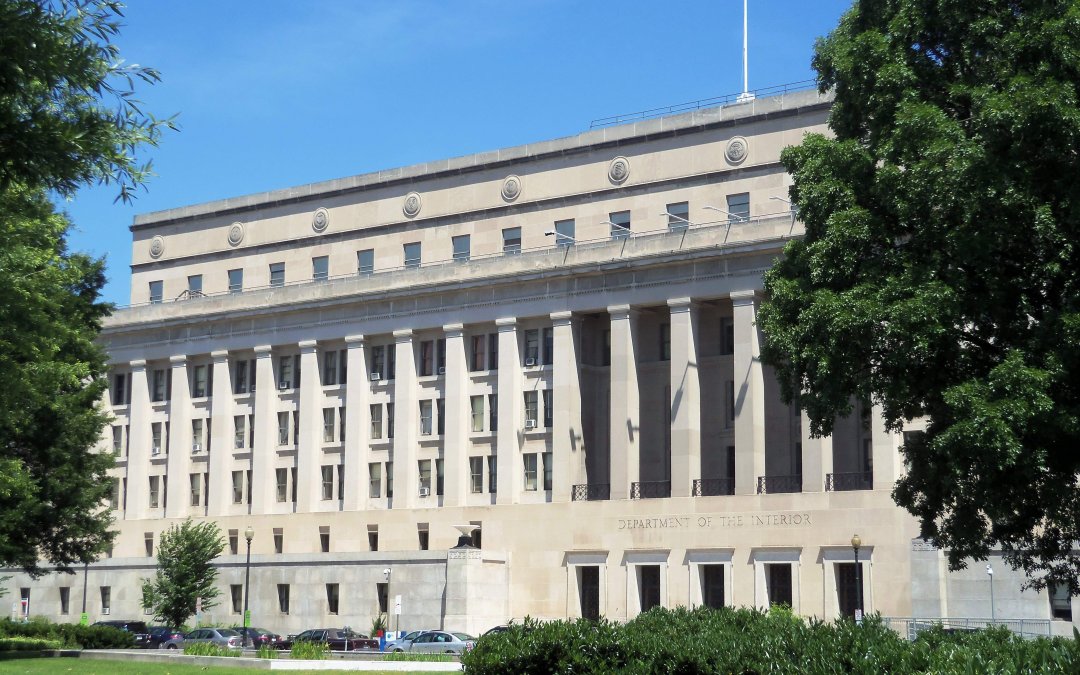WASHINGTON – The nonprofit organization that manages legal assistance for unaccompanied children who arrive in the United States scrambled to meet the needs of more than 26,000 children after a stop-work order stalled all federal funding.
The Department of the Interior abruptly sent the order to the Acacia Center for Justice on Tuesday with no clear explanation other than that it was “implemented due to causes outside of your control and should not be misconstrued as an indication of poor performance by your firm.”
The disruption at the Acacia Center for Justice underscores how the Trump administration’s unprecedented stop-work order put thousands of children at risk.
“In many cases, our legal representation is the only thing standing between these children and deportation,” said Lindsay Toczylowski, president and CEO of the Immigration Defenders Law Center, one of the nonprofits in a network run by the Acacia Center for Justice. “Without a lawyer by their side, these kids don’t have a fighting chance. This should not be a partisan issue. This should not be controversial. This isn’t really an issue about the border, about immigration policy. This is about child welfare.”
The Acacia Center for Justice provides legal services to “over 26,000 children in and released from Office of Refugee Resettlement custody,” according to a statement the center released. Under a contract with the Office of Refugee Resettlement, they work with a network of around 100 nonprofit legal service providers across the country.
With this stop-work order in place, any contractor or subcontractor to the Department of Health and Human Services would no longer receive money from the government for their work in providing legal orientation or representation to unaccompanied migrant children.
Gerson Navidad, a case management associate for the Immigration Defenders Law Center, was their client just eight years ago.
“I’m living proof of why legal representation for immigrant children matters,” said Navidad, who recently graduated from the University of California, Berkeley.
At 16, he escaped El Salvador to seek safety in the United States. He was by himself on that day in 2017 and was handcuffed for the first time in his life.
“I felt like I was already criminalized, even though I was just a kid. The government didn’t realize that I was fleeing because I was being persecuted by a gang, and it wasn’t until I met with a lawyer that I was able to share this part of my story,” he said. “[The Immigration Defenders Law Center] fought for me and stood by my side.”
After receiving legal support from the Immigration Defenders Law Center, Navidad was granted asylum in 2019 and became a long-term permanent resident in 2021.
Nonprofits like the Immigration Defenders Law Center teach children their legal rights, accompany them to court and manage their legal cases. They also recruit, train and mentor pro bono attorneys who may be less familiar with representing migrant children.
“Without having organizations who are able to mentor or assist and do the training for pro bonos, that pipeline of free legal counsel will also dry out,” said Jennifer Podkul, chief of global policy and advocacy at Kids In Need of Defense.
According to some conservative experts, the stop-work order fits into the new administration’s big picture for immigration policy.
“The Trump administration [is] seeking to turn off the magnets that are drawing people here illegally,” said Andrew Arthur, fellow in law and policy at the Center for Immigration Studies. “The prospect of receiving free legal representation is an enticement that would draw people to come to the United States illegally.”
He said this stop-work order could help save taxpayer dollars and deter people from “pay[ing] smugglers to bring children to this country.”
However, immigrant advocates disagreed that this stop-work order would slow illegal immigration. Podkul said unaccompanied migrant children come seeking protection because they are not safe where they are, not because they are incentivized by opportunities for free legal representation.
When apprehended at the border without a parent or pre-authorization, authorities bring children to deportation proceedings where a judge decides whether or not they are authorized to stay in the United States. Though most unaccompanied children don’t have a form of pre-authorization, many of them have qualified for humanitarian protection, asylum or a visa for victims of human trafficking, according to legal advocates.
“So once they get that, they would no longer be deemed illegal,” Podkul said.
The nonprofit organizations said children as young as 2 years old may now have to represent themselves at court. Though the underlying contract between the Office of Refugee Resettlement and the Acacia Center for Justice was not revoked, it was unclear how long this stop-work order will last.
“To see this same group of vulnerable children targeted again and stripped of any legal defense is the gravest injustice. And it’s really quite ominous,” said Susan Reed, director of the Michigan Immigrant Rights Center.
The nonprofit organizations said they do not have enough reserve funds to be able to finance their legal services. However, many said at a press conference Wednesday that they will continue to provide services to their current clients for as long as they can.
“We are not prepared to walk away from our clients, so we are looking at all of our options,” said Reed. “But in a certain sense, our organization is in a financial free fall right now. And so there may come a time where we do have to withdraw from our cases, lay off our staff. We’re fighting today, but that’s a real possibility.”

